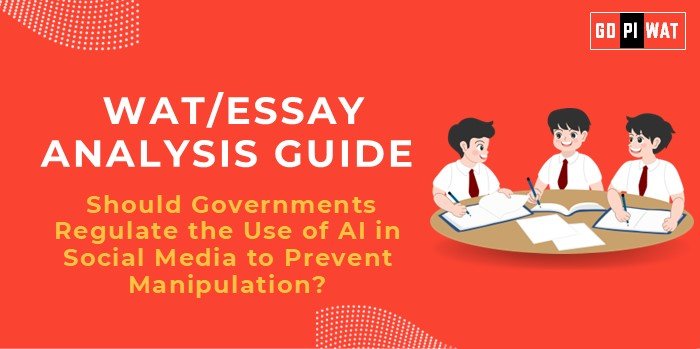🌐 Should Governments Regulate the Use of AI in Social Media to Prevent Manipulation?
📋 Introduction
Artificial Intelligence (AI) has revolutionized social media by enhancing user experiences through personalized content and advanced moderation. However, its misuse for spreading misinformation, manipulating public opinion, and breaching privacy has raised critical concerns, necessitating government intervention.
🏆 Achievements
- 🤖 Content Moderation: AI filters over 95% of hate speech and harmful content on platforms like Facebook.
- 🔍 Enhanced Personalization: Algorithms optimize user engagement by tailoring feeds to individual preferences.
- 🛡️ Safety Features: Tools powered by AI detect and remove harmful content efficiently, ensuring safer online spaces.
⚠️ Challenges
- 🗳️ Election Manipulation: The Cambridge Analytica scandal demonstrated how AI-driven data mining influences voter behavior.
- 📉 Misinformation: Algorithms often amplify sensational or misleading content to drive engagement.
- ⚖️ Algorithmic Bias: AI systems can perpetuate biases present in training data, leading to unfair outcomes.
🌍 Global Comparisons
- 🇩🇪 Germany: NetzDG law mandates social media platforms to remove illegal content within 24 hours, setting a regulatory precedent.
- 🇸🇬 Singapore: The Protection from Online Falsehoods and Manipulation Act (POFMA) combats misinformation with legal penalties.
- 🇺🇸 United States: While tech companies self-regulate, recent hearings have underscored the need for federal AI legislation.
🔮 Future Outlook
To curb AI manipulation, governments should establish transparent regulatory frameworks that encourage ethical AI development. Partnerships between tech companies and policymakers can ensure compliance, while public awareness campaigns on digital literacy empower users to discern credible information.
📄 Conclusion
While AI enriches social media experiences, its unregulated use poses risks to societal trust and democratic values. Governments must implement balanced regulations to foster innovation while ensuring accountability. Learning from global examples like Germany’s NetzDG and Singapore’s POFMA can guide nations in shaping ethical AI ecosystems.


